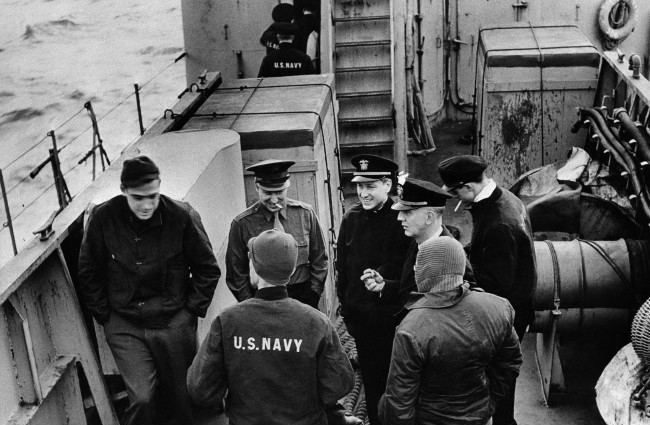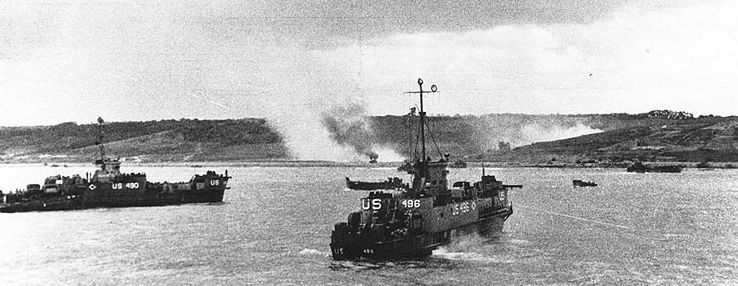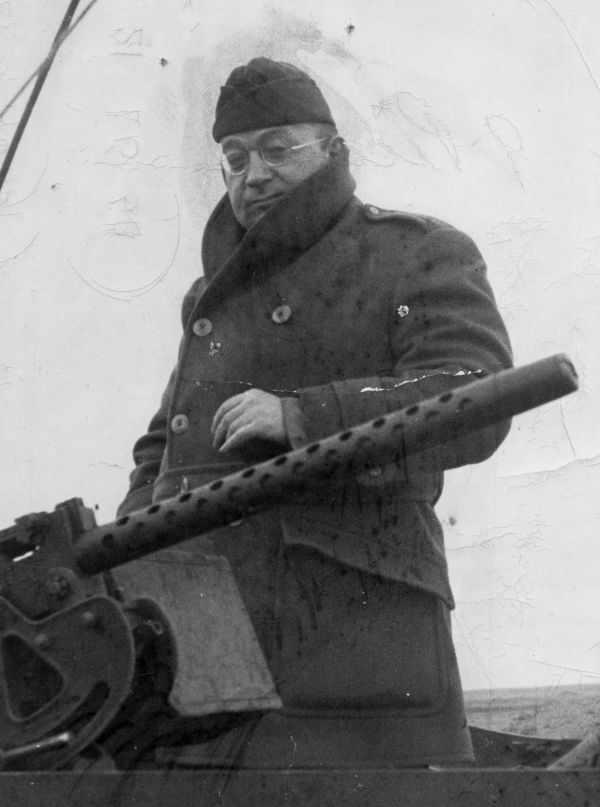Authors:
Historic Era: Era 8: The Great Depression and World War II (1929-1945)
Historic Theme:
Subject:
Spring 2019 | Volume 64, Issue 2


Authors:
Historic Era: Era 8: The Great Depression and World War II (1929-1945)
Historic Theme:
Subject:
Spring 2019 | Volume 64, Issue 2

One of the hundreds of boats that the Allied air armada barreled past at 0700 on D-Day was LCIL-88, a Landing Craft, Infantry, Large, operated by the U.S. Coast Guard and carrying an elite band of demolitionists from the Sixth Amphibious Naval Beach Battalion. At that precise moment, LCIL-88 was hovering a mile or so off a beach that Allied planners had christened “Omaha.”
Bracing themselves against choppy seas, LCIL-88’s officers were standing on the bridge, peering through field glasses, trying to divine how the first wave of seaborne troops — infantrymen from the U.S. Army’s Blue and Gray Division, the 29th — was faring. From that distance it was tough to tell, but it didn’t look good. Huge plumes of smoke billowed from German artillery and 88’s, the deadly accurate antiaircraft and antitank guns. Every few seconds there was a concussive whoosh! as enemy gunners zeroed in on the boats in front of them. The splashes were getting closer and louder.
At exactly 0735 — 65 minutes after H-Hour — LCIL-88’s job was to clear a path for the next wave of invaders scheduled to hit the heart of Omaha. Its mission was to deposit the Navy demolition team, expert engineers who’d been trained to dismantle the insidious obstacles that German commander Erwin Rommel had planted to repel an attack. Allied planners called that section of the beach, apparently without irony, “Easy Red.”

Perched next to the officers was a rotund 39-year-old writer with thick wire-rim glasses named Abbott Joseph Liebling. Liebling, scion of a wealthy New York family, owned a set of binoculars so powerful that he loaned them to the LCIL’s captain that morning.
The essayist was “A. J.” to readers of the New Yorker magazine but “Joe” to his friends - and in five days on board the LCIL, four of them spent docked at Weymouth, England, Liebling had made a lot of new friends. The Coast Guard and Navy men were tickled that an intellectual with an Ivy League pedigree could talk sports - especially prizefighting - with such relish. Liebling not only knew more about boxing than most cornermen, but loved to imitate his heroes, inducing howls as his chubby carcass pranced and jabbed, bobbed and weaved. He was also a dead-on mimic, the kind of guy who could eavesdrop on a snatch of conversation and instantly spoof both ends.
One of the crew members who got a kick out